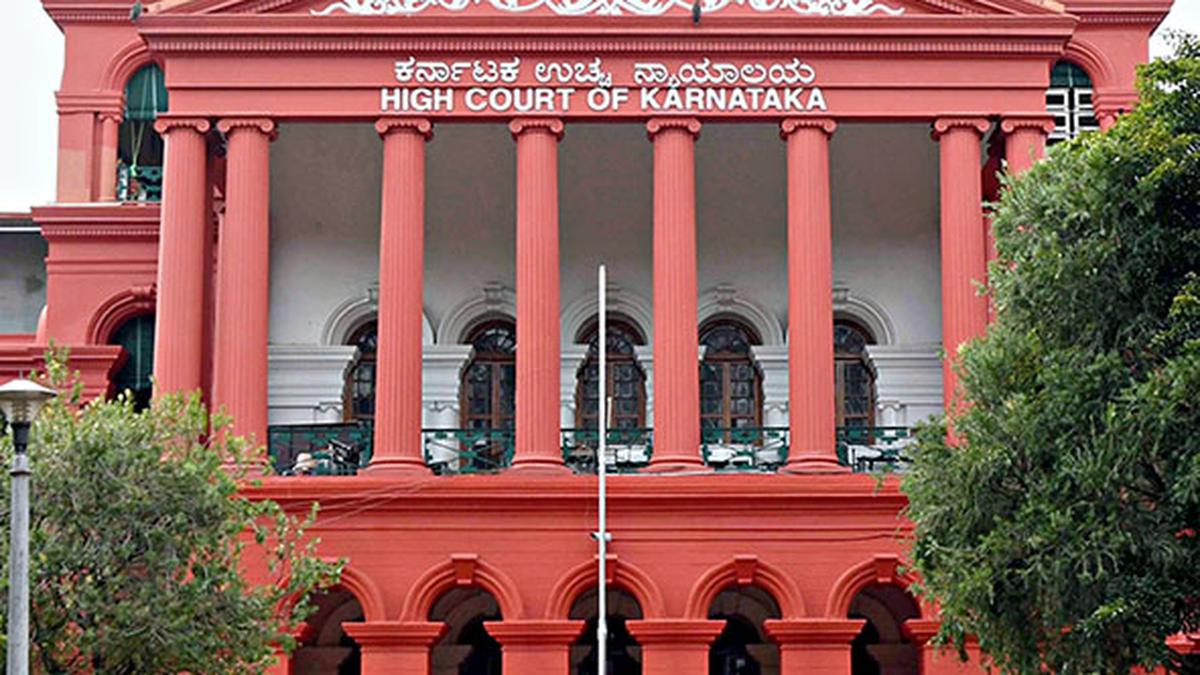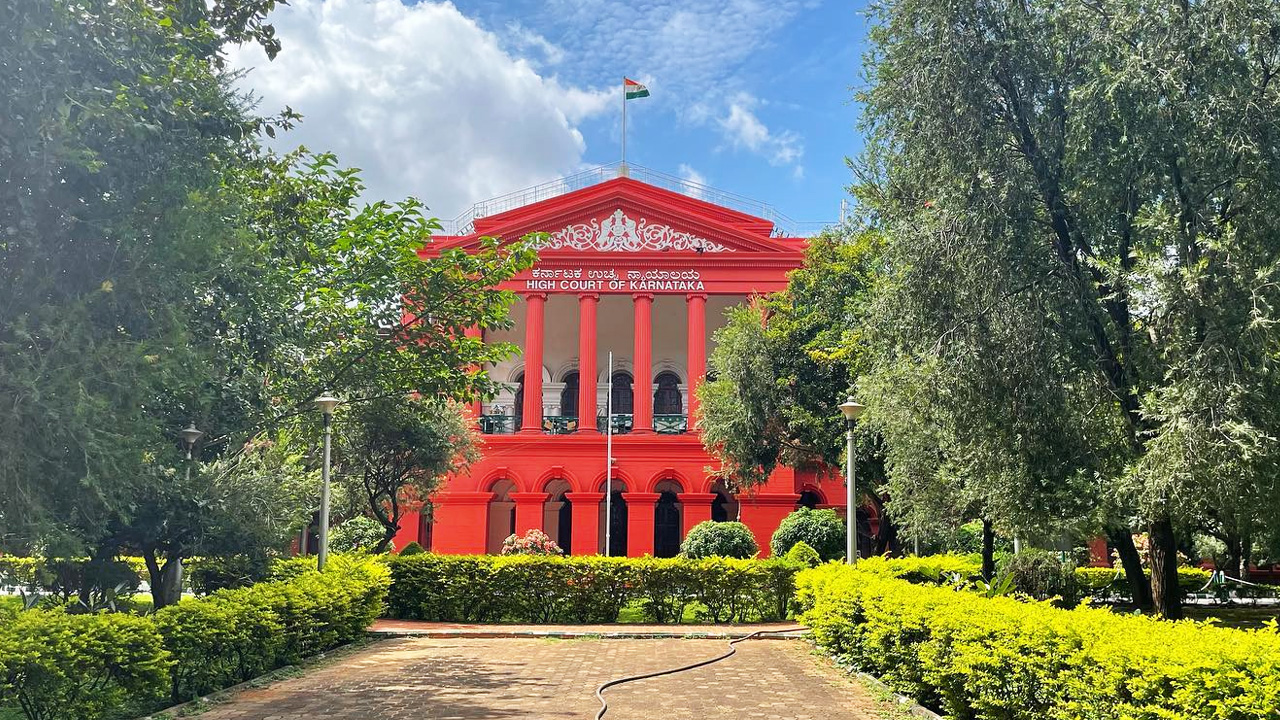The Karnataka High Court has issued notices to both the State and Central governments in connection with a batch of Public Interest Litigations (PILs) that challenge the legality of the ongoing socio-economic survey. The petitions allege that the survey, aimed at collecting detailed socio-economic and caste-based data, violates constitutional provisions and exceeds the government’s authority. The court, while admitting the petitions, directed the respondents to submit their replies and justify the legality of the survey. This move has sparked a wide-ranging debate on governance, privacy, and social justice.
The PILs were filed by several organizations and individuals who argued that the survey lacks statutory backing and could be misused for political or electoral gains. Petitioners contended that such a massive data-collection exercise intrudes into personal lives without sufficient safeguards, potentially infringing upon the right to privacy guaranteed under Article 21 of the Constitution. They also questioned whether the State government has the jurisdiction to undertake caste enumeration, pointing to the Centre’s role in national-level census operations. The court has asked both governments to clarify their positions on these constitutional concerns.
The socio-economic survey, often described as Karnataka’s most ambitious data-collection drive in recent years, was initiated to gather information on education, employment, income, housing, and caste. Proponents of the survey argue that it is a crucial tool to design welfare programs and ensure equitable distribution of resources. However, critics fear it may deepen caste divisions, spark controversies, and be manipulated for short-term political advantages. The High Court’s intervention now places the entire exercise under judicial scrutiny, potentially altering its trajectory and scope in the coming months.


Privacy and governance concerns rise
The petitions highlight growing anxiety over the absence of clear data-protection laws in India. With the survey collecting sensitive socio-economic and caste information, critics argue that citizens face the risk of their personal details being leaked, misused, or weaponized for political mobilization. Lawyers representing the petitioners stressed that until a comprehensive data privacy framework is enacted, exercises of such scale should be suspended. The High Court’s notice, therefore, is being seen as a critical step in re-examining how state-driven surveys balance governance needs with individual rights.
Civil society groups have also raised alarms about the methodology and transparency of the survey. Many allege that enumerators lack adequate training, increasing the chances of errors and inconsistencies in data collection. Others argue that the exercise lacks proper consent mechanisms, with citizens often unaware of how their information will be used. These gaps, petitioners say, not only undermine the credibility of the survey but also raise constitutional questions on informed participation in state-run schemes.
Political implications and next steps
The issue has strong political overtones, with ruling and opposition parties divided on the merits of the survey. Supporters within the ruling establishment argue that the data will provide a long-overdue picture of social inequities, helping the government fine-tune welfare programs. Opposition leaders, however, allege that the exercise is politically motivated, designed to appease certain communities while sidelining others. With the High Court stepping in, both State and Central governments must defend their positions in the coming hearings, which could determine whether the survey proceeds or faces suspension.
The High Court has listed the matter for further hearing in the coming weeks, by which time both governments are expected to submit detailed affidavits. Legal experts suggest that the outcome of this case could set a precedent for how socio-economic surveys are conducted in India, especially when overlapping with the constitutional domain of census operations. Until then, the survey remains under a cloud of uncertainty, with citizens, policymakers, and political leaders anxiously awaiting judicial clarity.
The survey is being conducted at a time when caste dynamics are heavily influencing Karnataka’s political landscape. Parties are keen to position themselves as champions of backward communities, making the survey a powerful tool in shaping political narratives. Petitioners argue that this timing further reinforces the suspicion that the survey may not be entirely neutral in its intent. The High Court’s notice is thus not only a legal intervention but also a check against possible misuse of state machinery for electoral purposes, a fear that resonates with many sections of society.
Another key issue flagged by the petitioners is the duplication of roles between the State and Centre. The Census of India, conducted every ten years, already collects population and socio-economic data under the authority of the Union government. By undertaking a similar exercise, the State is accused of bypassing the federal structure of governance. Legal experts note that unless the State can establish a specific constitutional or statutory mandate, the entire survey may face annulment on grounds of legislative incompetence. This federal dimension adds a complex layer to the ongoing case.
Concerns have also been raised about the classification of caste data. Unlike the census, which has standardized categories, the Karnataka survey is reportedly using locally adapted categories that differ from national norms. This raises the risk of inconsistencies and disputes over the accuracy of caste figures. Petitioners fear that communities may contest their representation in the final report, potentially leading to unrest. In a state where caste is deeply intertwined with identity politics, the manner in which categories are defined could have long-term social and political consequences.
Supporters of the survey, however, believe that such objections are overstated. They argue that Karnataka’s diverse social fabric requires a context-specific approach rather than relying entirely on centrally determined categories. Pro-survey voices say the data will help the government better understand ground realities, especially in rural areas where poverty, landlessness, and educational backwardness persist. By mapping caste-linked disadvantages, the State claims it can recalibrate welfare schemes to target the most deprived groups. For these advocates, the court case represents an attempt to stall progressive reform under the garb of constitutional objections.
The debate has also reignited discussions on the implementation of reservations. Several communities have long demanded a caste census to justify either an expansion of quotas or inclusion in backward-class lists. The Karnataka survey is seen as a step in this direction, particularly after the central government refused to conduct a nationwide caste census alongside the 2021 population count. Critics say the State survey is a way of filling this gap, but opponents warn it could trigger competitive politics among communities vying for recognition as backward classes.
On the ground, the survey has already faced logistical hurdles. Reports suggest that enumerators are encountering resistance from citizens who are reluctant to share detailed personal information. Some communities have openly expressed skepticism about how the data will be used, fearing surveillance or discrimination. Training gaps among enumerators have compounded these problems, with several cases of incomplete or inaccurate data entry being reported. Petitioners cited these lapses to argue that the entire exercise risks producing unreliable outcomes, making it unfit as a basis for policy-making.
The role of technology in the survey has also come under scrutiny. With digital devices being used to collect and store information, cybersecurity experts worry about potential breaches. In the absence of robust data protection legislation, sensitive socio-economic data could be vulnerable to leaks or hacking. Petitioners argue that the government has not provided adequate details on storage, encryption, or accountability mechanisms. Given the increasing number of cyberattacks in India, the High Court is expected to examine this dimension closely before deciding the legality of the process.
Adding to the complexity, the Central government is likely to argue that the survey falls outside the State’s jurisdiction. The Centre has consistently maintained that any enumeration of caste for policy purposes should be carried out only through the census, which is its exclusive domain. State officials, however, may counter that they are not conducting a census but rather a socio-economic survey tailored to welfare planning. This definitional debate will be a key point of contention when the governments file their responses in the coming hearings.
The matter also raises fundamental questions about the balance between social justice and individual rights. While the government’s intention may be to expand welfare benefits, the method of collecting information is equally important in a constitutional democracy. By compelling citizens to disclose caste, income, and family details without clear legal backing, critics say the survey reduces individuals to data points. The High Court’s decision will therefore have to strike a balance between collective welfare goals and the constitutional promise of individual dignity and privacy.

Interestingly, the case has drawn attention from states beyond Karnataka. Several states have previously attempted caste-based surveys but faced similar legal and administrative hurdles. Bihar’s caste survey, for instance, also faced court challenges before being allowed to proceed. Legal observers believe that the Karnataka case could create a precedent that will either encourage or deter other states from conducting such exercises. The outcome will likely have national implications, shaping the broader debate on caste enumeration in India’s democratic framework.
Economists have weighed in on the controversy, pointing out both potential benefits and risks. Supporters argue that detailed socio-economic data can help address structural inequalities, boost employment generation policies, and fine-tune subsidy programs. However, others warn that inaccurate or politically influenced data may distort resource allocation and deepen social tensions. If the High Court invalidates the survey, it could stall welfare reforms dependent on fresh data, leaving policymakers to rely on outdated census figures. Thus, the stakes extend well beyond Karnataka’s borders, influencing the national policy discourse.
The High Court’s notice has already triggered sharp reactions from political leaders. Members of the ruling party insist that the survey is a moral and political necessity to address social inequalities, accusing opponents of blocking progressive change. Opposition leaders, meanwhile, claim the government is using the survey to consolidate caste-based vote banks ahead of elections. The political narrative is likely to intensify in the coming months, with both sides portraying the court’s intervention as either an obstacle or a safeguard against misuse of power.
Follow: Karnataka Government
Also read: Home | Channel 6 Network – Latest News, Breaking Updates: Politics, Business, Tech & More

